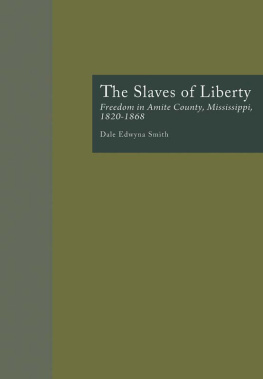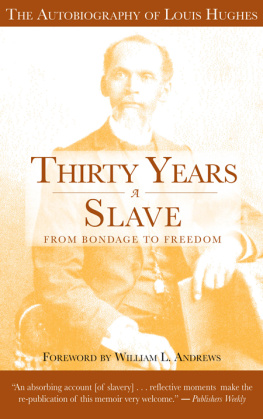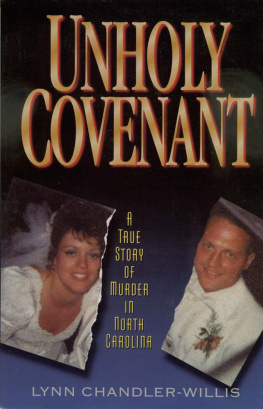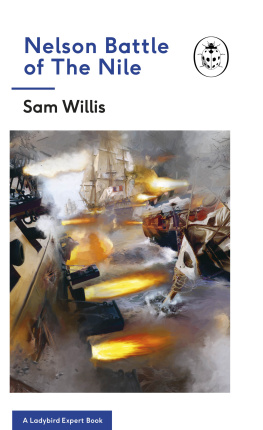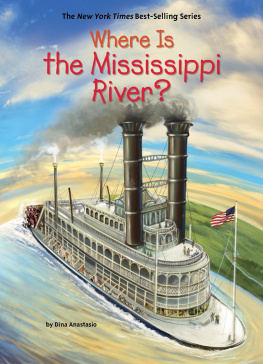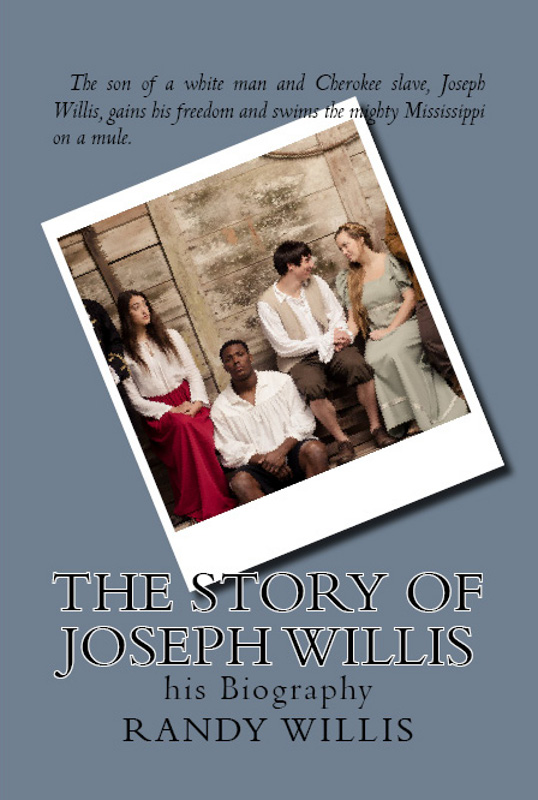All rights reserved. No part of this publication may be reproduced, stored in a retrieval system, or transmitted in any form or by any meanselectronic, mechanical, photocopying, recording, or otherwisewithout the prior written permission of the publisher. Request for permission to reproduce material from this work should be e-mailed to .
THE STORY OF JOSEPH WILLIS
HIS BIOGRAPHY BY RANDY WILLIS
PREFACE
M y familys story in America does not begin here. It begins in England in 1575. That year Nathaniel Willis was born, in Chettle, Dorsetshire, which is a county in South West England, on the English Channel coast. The county borders another county to the west that contains my deep Willis roots, Devonshire. Why would my ancestors leave their homeland, England, for an unknown land fraught with danger? The answer was religious persecution!

In 1620 a small group of Separatists would flee England via Plymouth Sound, situated between the mouths of the rivers Plym to the east and Tamar to the west, in the county of Devonshire. Besides fleeing religious persecution and searching for a place to worship, they wanted greater opportunities. The Mayflower was the aging ship that transported them. They sailed from Plymouth, on the southern coast of England, bound for the New World, seeking their new Plymouth. There were only102 passengers and a crew of about thirty aboard the tiny 110 ship. They found their new home and named it Plymouth Colony. They became known as the Pilgrims. Five died during the voyage, and another forty-five of the 102 immigrants died the first winter. There, they signed the Mayflower Compact which established a rudimentary form of democracy.

Nathaniel later moved to London, where his son John Willis was born in 1606, only fourteen years before the historic Mayflower voyage. Fifteen years after that voyage, at age 29, John may have sailed for St. Christopher (a.k.a. St. Kitts) in the West Indies on April 3, 1635, on the ship Paul from Gravesend. But there is no record the ship stopped in New England. Gravesend is an ancient town in northwest Kent situated on the south bank of the Thames River near London. If the Paul was the ship John sailed on in route to the New World and carrying the dreams that would be passed on to subsequent generations, including myself, he may have barely escaped death. The Great Colonial Hurricane was in August of 1635. It was the most intense hurricane to hit New England since European colonization. If John would have sailed a month or two later he might not have made it to America, and this story, along with his dreams, would have ended at the bottom of the Atlantic Ocean.
Nevertheless, John Willis first appears in America in Plymouth Colony, Massachusetts, in 1635, when his son John Willis, Jr. was born. He appeared again in Duxbury, in 1637, when he married Elizabeth Hod-gkins Palmer, on January 2, 1637. She was the widow of William Palmer, Jr. Duxbury was first settled in 1632 by people from Plymouth Colony, and set off from that town in 1637.
John Willis (a.k.a. Deacon John Willis), was later the first deacon in Plymouth Church. Reverend James Keith was the first settled minister in the area. The church parsonage, sometimes simply called the Keith House, was built for him. It is preserved and maintained by the Old Bridgewater Historical Society (OBHS), in West Bridgewater, Massachusetts. It is the oldest parsonage in America.
John also had brothers who were immigrants to the Plymouth Colony area. They were: Nathaniel Willis, Lawrence Willis, Jonathan Willis, and Francis Willis.

The population was about 400 in the 1630s. John Willis would have known everyone in the Plymouth Colony area, especially its Governor, William Bradford, who was the English Separatist leader of the settlers there. William was Governor of Plymouth Colony when John arrived in 1635. John Willis held offices in Duxbury in 1637 and at Bridgewater in the 1650s. Bridgewater was created on June 3, 1656, from Duxbury, in Plymouth Colony. In 1648, John was a juror at the murder trial of Alice Bishope, who was hanged for killing her daughter, Martha Clarke.
In 1623, Governor William Bradford proclaimed November 29, as a time for pilgrims, along with their Native American friends, to gather and give thanks. His proclamation contained these words: Thanksgiving to ye Almighty God for all His blessings. It would later be known as Thanksgiving.
A century later, John Williss direct descendant, Joseph Willis, would marry a direct descendant of William Bradford, Rachel Bradford. Im the 4th great-grandson of Joseph Willis and Rachel Bradford Willis.

John and Elizabeth Willis had nine children: Sarah, John, Nathaniel, Jonathan, Comfort, Elizabeth, Joseph (1651-1703), Hannah, and Benjamin, Sr. John died August 31, 1693, in Plymouth Colony.
Benjamin Willis, Sr. was born in 1643, in Plymouth Colony, and died there, May 12, 1696. He married Susanna Whitman in 1681 in Bridgewater. Susanna Whitman was born in Devonshire. Benjamin, Sr. and Susanna Willis had six children: Abigail, Elizabeth, Susanna, Thomas, Benjamin,Jr., and Josie. Josie married John Council.
Benjamin Willis, Jr. was born in 1690 and died in 1779 in Bridgewater. Benjamin, Jr. married Mary Leonard in 1719. Benjamin, Jr. and Mary Willis had five children: Agerton, Daniel, Benjamin, III, George, and Joanna. Joanna married James Council of Isle of Wight County, Virginia in 1751. James was the son of John Council and Josie Willis Council, and grandson of Hodges Council. Hodges emigrated from Devonshire.
Benjamin, Jr. and Mary Williss five children would all move to North Carolina. They would become the wealthiest plantation owners in Bladen County, North Carolina, with vast land holdings, and many slaves.
One of these five children, Agerton Willis, and a Cherokee slave would have a son. He was born in 1758. He was their only son. As the son of a white man and a Cherokee, he lived as a slave on his own property. He was cheated out of his inheritance by an uncle and rejected by many in the family. He would fight for his freedom and change American history. He was my fourth great-grandfather. This is his story. His name was Joseph Willis.
HIS LEGACY
Joseph Willis preached the first Gospel sermon by an Evangelical west of the Mississippi River.
He swam the mighty Mississippi River, riding a mule, into the Louisiana Territory before October 1, 1800, the date Napoleon secured the Louisiana Territory from Spain. The Louisiana Territory extended from the Mississippi River to the Rocky Mountains. The territory was vast and largely unexplored, with many hidden and not-so-hidden dangers.
He was born a Cherokee slave to his own father. The obstacles intensified when his family took him to court to deprive him of his inheritance, a battle that involved the state governor. Never daunted, he fought in the Revolutionary War under the most colorful of all the American generals, Francis Marion, The Swamp Fox. He would soon cross the most hostile country and enter a land under a foreign government, while the dreaded Code Noir, the Black Code, was in effect. In this territory, he preached a message that put him in constant mortal danger. All of this was done under a cloud of racial and religious prejudice of the most dangerous kind. At first, his own denomination refused to ordain him because of his race. He lost three wives and several children in the wilderness, but he never wavered in his faith in Christ, nor in his calling to preach the Gospel of the Lord Jesus Christ.


